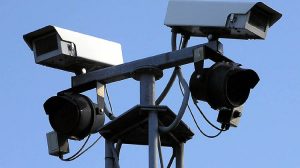Any software that exists to harm a computer or a system can be classified as malware. But not all malware harms you financially. For example, although adware, toolbars, homepage hijackers, and small PUPs (potentially unwanted programs) can reduce the quality of your computing experience, they usually don’t impact your money. So, let’s look at some malicious software that can harm you financially:
Cryptomining Malware
With the value of cryptocurrencies like Bitcoin, Litecoin, and Ethereum rising, more hackers employ cryptomining malware to use your computer’s hardware without your consent to mine cryptocurrency. How does this cryptojacking cost you financially? Well, the energy costs of mining cryptocurrency can send your electricity bill through the roof. Moreover, cryptomining can adversely impact the lifespan of a computer.
Trojans
Trojans are a type of malware that trick you into installing them on your computer. Once on your computer, they use your system to perform malicious tasks. Here are some Trojans that impact you financially:
- Banker Trojans are designed to steal your financial data, such as your banking and credit card info.
- Ransom Trojans are malware that drop ransomware on your computer.
- Remote Access Trojans allow hackers to take over your computer.
- Trojan Game Thief is a type of Trojan that attacks gaming accounts.
Check for Trojans periodically with a Trojan scanner to ensure that your system is free of deceptive computer viruses and malware infections.
Computer Viruses
A computer virus is a type of malware that can delete the files in your computer and even crash your machine in the process. Recovering the only copy of your precious data like your documents or media after a computer virus infection can require the pricey services of a specialist. Computer viruses work fast, so avoid activating corrupt files and keep your antivirus software up to date.
Computer Worms
Computer worms are similar to computer viruses. They can quickly corrupt your valuable data. However, worms can be more dangerous because they don’t require human interaction to activate or spread. Recovering your data after a worm attack can be costly. The best way to shield your system from worms is to activate a firewall and avoid threat vectors like malicious email attachments or fraudulent websites.
Ransomware
Ransomware is higher on the financial threat scale than computer viruses or worms because it aims to blackmail you. Some ransomware even has worm-like capabilities and can move across networks. In a nutshell, ransomware encrypts your data and threatens to corrupt it permanently unless you send money to its author. Usually, gangs behind ransomware attacks ask for money in cryptocurrency because the medium is less traceable.
Spyware
A threat actor can use spyware to watch you through your webcam, listen to you through your microphone, take screenshots of your documents and login credentials, track your online activity, and track your physical activity through your GPS. Theoretically, a home invader can use spyware to learn when you’re not at home and steal from you. A threat actor can also use spyware to commit financial crimes or identity theft.
Keyloggers
Keyloggers are a less complex type of spyware that register your keystrokes. A hacker can get your usernames and passwords to access your bank accounts, credit cards, and more with a keylogger.
There are many different types of malware on the Internet that can harm you financially. The best way to secure your accounts is to use top anti-malware software, strong passwords, two-factor authentication, and avoid phishing attacks.
Follow Techrado for more!







